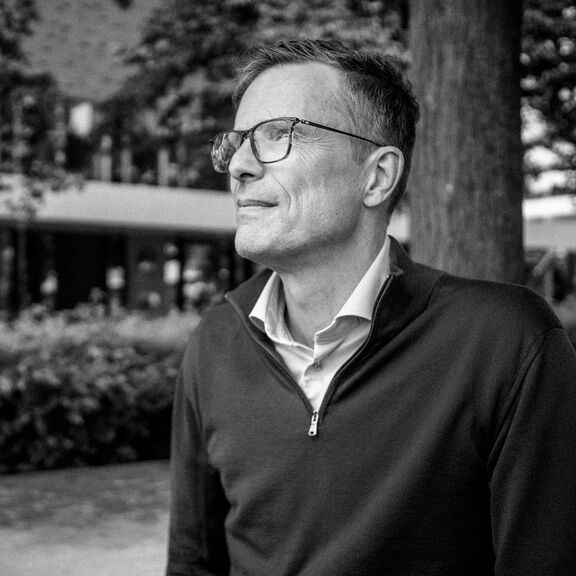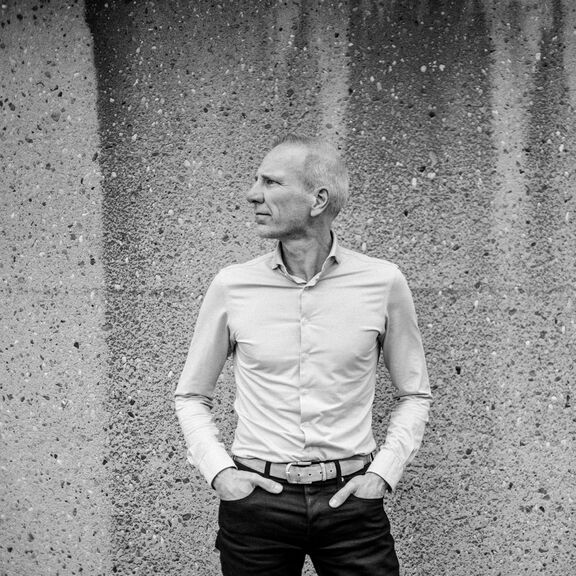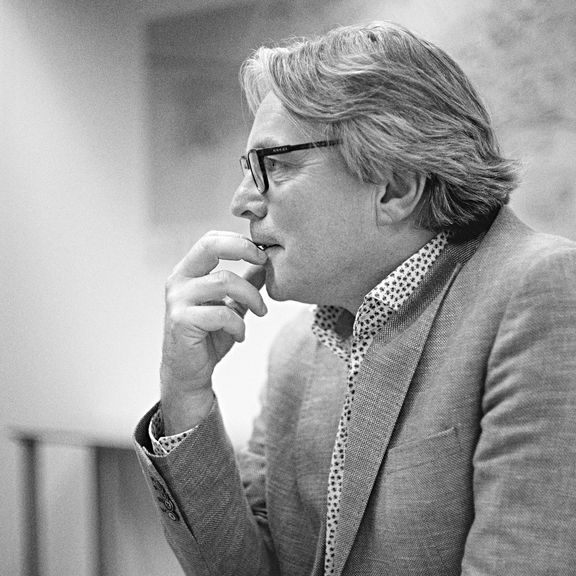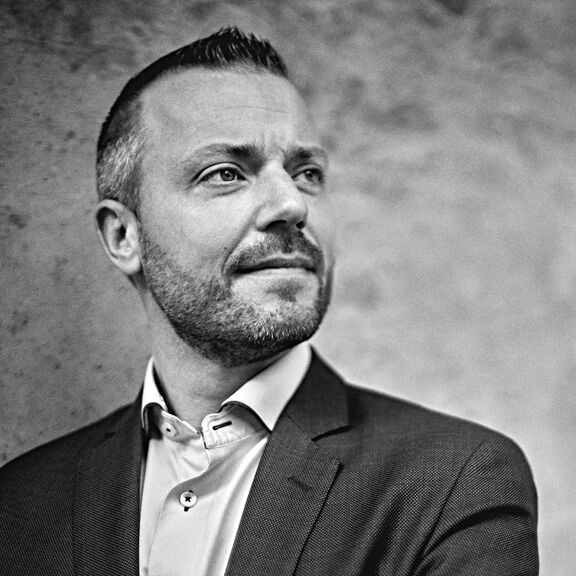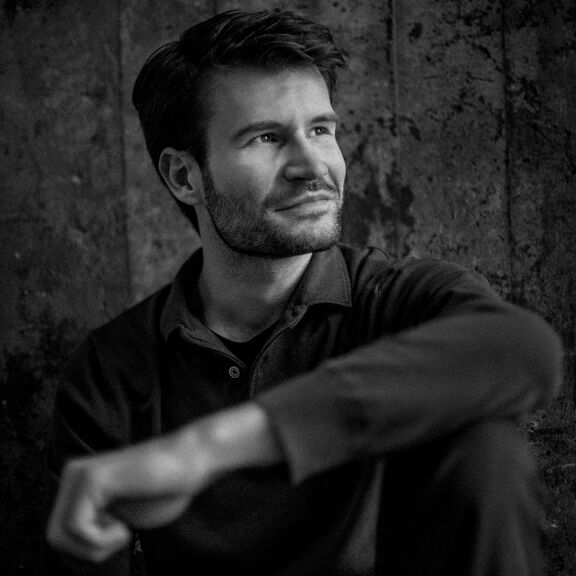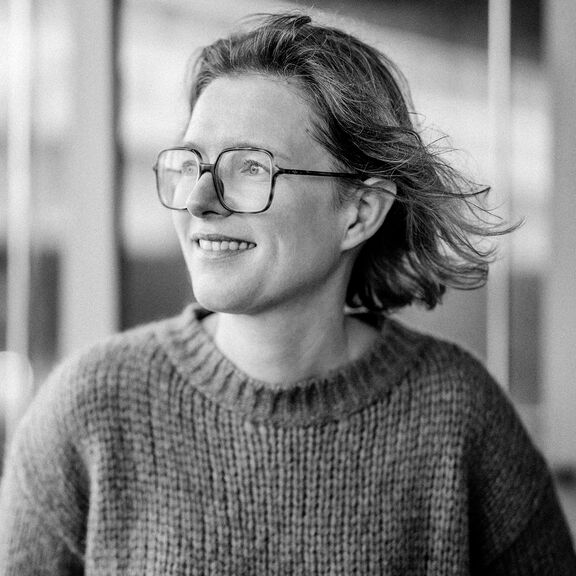‘A forest brings me as much joy as a storage facility does’
Reading time: 8 minutes
She believes that dreams can be realised, provided you have the courage to articulate them and surround yourself with the right supporters. Refke Gunnewijk is Head of Clean Industry & Transport at the Port of Rotterdam Authority. If it were up to her, the interconnectedness of the economy with ecology would become not only obvious but also taken for granted as soon as possible.
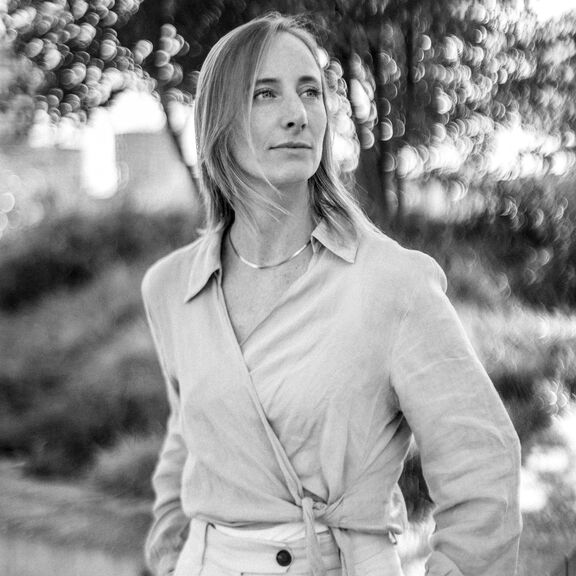
She regards herself as passionate, striving to connect with others and make a positive contribution to the world, nature and those around her. How does she do that? Through dreaming, creativity, imagination, and, at times, by challenging established norms. She has always been captivated by art, as well as by heavy industry and transport. She studied at Delft University of Technology before pursuing a career in the port of Rotterdam. Heavy industry and transport are critical sectors, yet they also make a significant contribution to emissions, thereby offering considerable potential for change.’
Refke is committed to making transport more sustainable and advancing the raw materials transition. The energy transition strategy was developed in 2017 around three pillars: efficiency & infrastructure, a new energy system and a new raw materials and fuel system. However, Refke noticed that ‘making transport more sustainable’ was missing from the list and raised the issue within the Port of Rotterdam Authority. Transport now has its own dedicated pillar in the strategy, with Refke leading a team of 18 people focused on making transport more sustainable and driving the raw materials transition within the industry. She believes that you should share your dreams. ‘Sharing them allows you to engage others and create something together. That may sound rather idealistic, but a dream is an opportunity that requires action. And to realise that opportunity, you need others. You can't achieve anything alone.’ According to Refke, the team she has assembled around her consists of individuals who are intrinsically motivated to drive change. ‘Otherwise, you won't be able to sustain this work. You have to sail against the current.’
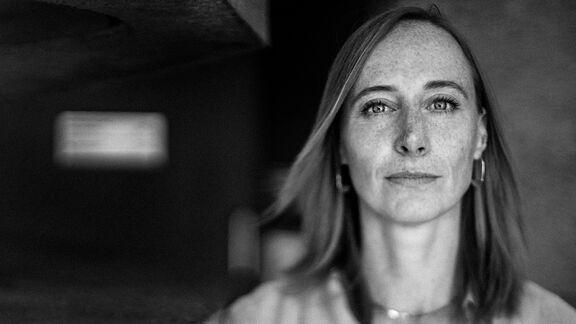
‘The raw materials transition is significantly more complex than the energy transition.’
Making music together
‘Here you can work towards the moment when plans turn into action. Collaborating with stakeholders to identify the key concerns and find solutions,’ says Refke about the work in the port. She seeks connections, creativity and courage within the port of Rotterdam and beyond, to address major challenges. Together with her team, she is committed to making chains more sustainable: ‘A vessel without sustainable fuels is of no use, but the reverse is also true.’ She believes that playfulness and creativity are key to engaging people in the complexity of this transition: ‘My team has created a game to connect the components of an emission-free chain, from production to vessel. That truly helps people understand how they can contribute.’ And taking risks, ‘Dare to make mistakes. The route to realising a new system is fraught with uncertainty. Everyone must make their own contribution to make it happen.’ According to Refke, everything is connected, including the chains that use the port, ‘It's like an orchestra. Everyone plays an instrument, but together, you create music.’
She provides examples of dreams that have been realised. ‘Heineken had the dream: “How can we sail emission-free?'” Then, the company ZES was founded, resulting in the first inland vessel powered by batteries.’ But she also considers CCS (Carbon Capture & Storage), ‘We recognised the need to capture more CO₂. While this isn’t the end result, every step is necessary: it’s a building block within a broader strategy for a future-proof industry. This is how the Porthos project came to life, which will soon see CO₂ stored under the North Sea.’ She emphasises, ‘Of course it’s insufficient on its own, yet it represents a significant step forward.’

Critical materials as a new theme
She and her team are also committed to critical materials as an integral part of the raw materials transition. ‘The raw materials transition is significantly more complex than the energy transition.’ Refke continues, ‘In the energy transition, there is a shift from energy derived from fossil sources to energy sourced from wind and solar power – electrons. The raw materials transition involves shifting from products derived from fossil sources to those made from renewable and circular sources – molecules. That is much broader.’ She provides examples of critical materials, such as germanium and lithium, which are essential for batteries, defence, digitalisation and the energy transition. ‘Or neodymium, which is found in windmills, for example, but also in “cheap toys” that you readily throw away.’ According to Refke, there should be an increasing focus on recycling and processing critical materials within Europe. Refke was asked how we, as a Port Authority, can contribute to this effort. . There is already a lithium-ion battery recycling facility in Rotterdam, but the port needs to increase collaboration with other countries and supply chain partners. ‘What land do we still have, and to which parties will we allocate it? We are still in the early stages, but a growing number of ideas are emerging.’
What kind of world do I want to live in?
According to Refke, her drive to make a positive impact is deeply ingrained in her. ‘I believe that with every choice you make, you are endorsing the world you wish to live in. And that's how I genuinely try to make my choices.’ She states that when she was 18, she made a conscious decision to purchase second-hand furniture for her first acquisitions, opting for items made from high-quality materials and timeless designs. ‘I still have that furniture.’ Refke observes that people are increasingly unaware of the origins of the products and food available in supermarkets. Consequently, there appears to be a rising tendency to handle goods and interact with the world around us in a more indifferent manner. ‘We have become disconnected from the resources that nourish and sustain us. The entire supply chain relies on a vast array of raw materials and personnel. And so much is extracted under deplorable conditions.’ In her personal life, she is therefore dedicated to regenerative agriculture and builds her own furniture. ‘When you plant a tree or create something yourself, you come to realise how much effort it requires.’ The combination of nature in her personal life and her commitment to transition in her work life has proven to be a resounding success for her. ‘A storage terminal can bring me just as much joy as a forest does.’ But she can also be quite the activist. ‘I dream of a world where ecology and economy are far more interconnected. Not as a goal, but as a matter of course.’ She also adds that industry and transport are essential in a sustainable, circular world. ‘We can accomplish a great deal locally, but not everything. And many products that you use every day, such as raw materials for your bicycle, have been processed by the chemical industry,’ Refke explains. I believe that we must make conscious choices, but nonetheless, we need these sectors to enable us to supply and process our food, raw materials, products, and energy in a sustainable manner.
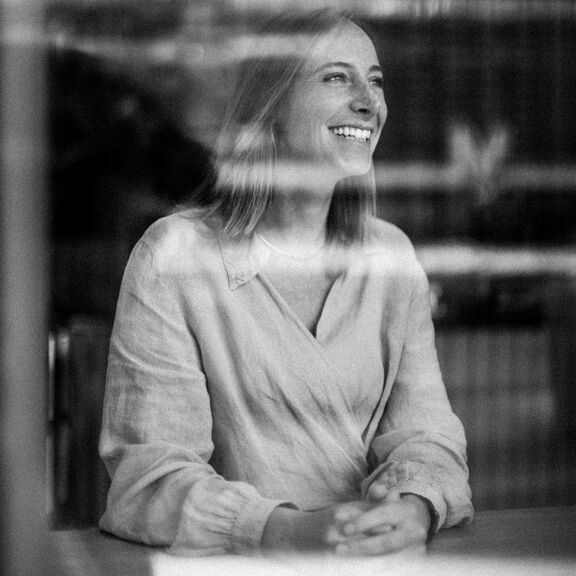
Concrete results
Refke is extremely proud of her team and of the connections that have been made in the market. ‘Although it may take a considerable amount of time, you can truly make a significant difference.’ After eight years of working at the Port of Rotterdam Authority, she 'finally' sees concrete results. ‘There is now a fast-charging station at the port, sustainable fuels are being bunkered and produced, recycling facilities are available in the port area, and Porthos is progressing. It’s really exciting to witness.’ At the same time, she believes there is still much work to be done. ‘I aim to move towards a sustainable industry and logistics that can thrive in a conscious manner. And that’s not easy.’
The geopolitical power shifts and the evolving political landscape keep her awake at night. ‘Sometimes, it feels as though there is more division than connection. These transitions stand, or fall based on strong government policies that stimulate sustainable development, ensure a level playing field and foster a conductive investment climate. Only then can we continue to advance this progress and, as an industrial and logistics cluster, contribute to raw materials needs and climate targets of both the Netherlands and Europe. Because if the industry leaves, we will become even more dependent on other parts of the world. Business cases are not always easy to quantify. If we look beyond just money, we need smart regulation.’ She believes that, in this regard, we sometimes move far too slowly. ‘We need perspectives. We can't keep moving the goal posts every four years. Otherwise, no one would dare invest. It’s evident that it’s possible with Sustainable Aviation Fuels (SAF): companies are willing to invest due to blending obligations.’
Start small
Despite the enormous challenges, Refke hopes that people will maintain their confidence. Changing a system is no easy feat – it takes time, and the process can be frustrating. It demands trust and a positive outlook to succeed. ‘Not everything needs to be perfect from the start. You can start small, including with your own choices. I believe it helps to be open to others, to start a conversation with each other, and to value different perspectives. We'll get there eventually – we can trust in that. However, it does not occur automatically: it requires courage and perseverance from us, governments and companies to continue building a better world. There is truly a noticeable difference between now and ten years ago. But it doesn't happen by itself. So, let's keep dreaming. Be curious. Connect. And dare to go for it!’
MAKING WAVES
In this series, you'll hear from people who are committed to a smart and sustainable port of Rotterdam, and our planet as a whole. Let them inspire you and help make that a reality.
